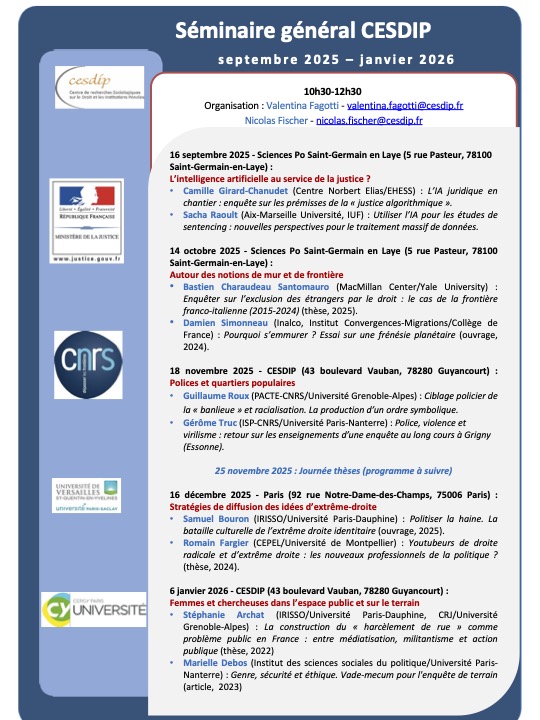by Mathilde DARLEY – october 2010
Mathilde DARLEY is a researcher at the CESDIP. She reports on the findings of a study conducted between 2004 and 2007 on cooperation between police forces, in the framework of her doctoral thesis on the control of illegal immigration in Austria and the Czech Republic.
Transdisciplinary research on borders has flourished since the late 1980s, but most so called Border Studies focus on social and cultural life in border areas, or on the effects of frontiers on the experience and perceptions of local populations. In contrast to this now well-established trend in research, studies concerned with the practices and perceptions of professional groups stationed on the border – that is to say, the police – are relatively underdeveloped1. Police cooperation on borders, as a specific aspect of policing activities, has received little attention by social scientists, as well. The few studies to be found are written by English-language researchers who often prefer to investigate supranational cross-border cooperation policies and the policing schemes such as Interpol in charge of enforcing them, rather than observing local cooperative practices on the borders themselves.
For Europe as a whole, research on border protection is particularly valuable, since border control is central to the EU project : the Schengen Agreement, signed by Belgium, France, Germany, Luxembourg, and the Netherlands in 1985, provides for the elimination of border checks within the Schengen area, in exchange for the reinforced control of its outer limits (with provisions made, essentially, by the Convention implementing the agreement, adopted in June 1990). The distinction between internal and external borders then became central to the EU project as well as to the integration of new member States.
The present research project, based on observations made between 2004 and 2007 at the border between Austria and the Czech Republic (an external frontier of the Schengen area at the time), attempted to determine how police border control practices were modified on a Schengen area border destined to become an internal EU border. To do so, interviews were conducted with upper-echelon police officers in Vienna and Prague, completed by field observations and interviews with border police officers stationed at the Czech/Austrian border.



